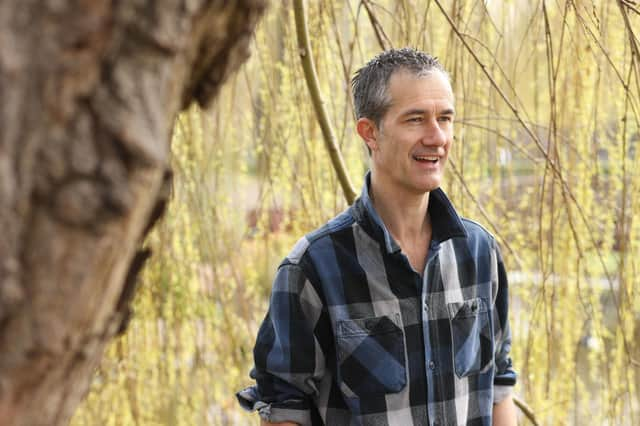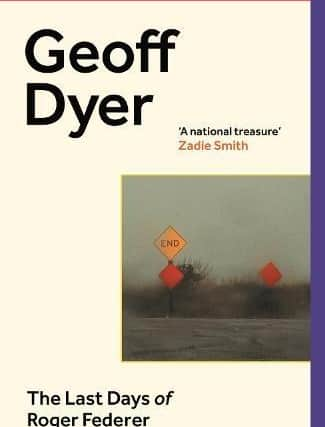Book review: The Last Days Of Roger Federer, by Geoff Dyer


There is a peculiar double joy in reading Geoff Dyer’s work. At the initial level, there is the sheer joy of reading his work. On a more rarefied level, there is the pleasure of re-reading it and wondering “just how the goodness did you pull that off?” Goethe famously rebuked Eckermann, contradicting him by saying that he did not have a style, he had styles; and even when it is supremely evident you are reading a piece by Geoff Dyer, the chimerical ability to change tone, register and timbre not just across a page, or a paragraph, but within a sentence is quite breath-taking. This book – multifarious, scatter-gun, leading the reader into digressions that transpire to be the very heart of the matter – is held together with one idea. The subtitle may be “and other endings”, but it is really about gloaming. Does a career end in invigorating difference, or fizzle out? Does it all, teleologically, lead to one final triumph or is it a set of random pieces of fortune and misfortune? Now in his sixties, Dyer seems curious, rather than obsessed, with the dying of the light.
Let me declare a disinterest. Some of the topics Dyer uses to examine his thinking are not ones that I care about much. I am not particularly interested in tennis. Scratch that: I am supremely bored by all sports. That said, I very much like reading about sport. Dyer faces stiff competition in writing about Roger Federer, since he was the subject of one of the late David Foster Wallace’s best essays, “Federer Both Flesh and Not”; that said, Dyer’s contribution neither mimics nor refutes that of Foster Wallace. The question that it circles is the idea of Federer’s last game, and Dyer compares this to what happened to Borg, McEnroe and the protracted non-retirement of Andrew Murray. Another key figure is Bob Dylan: what will be his terminal recording? Again, I am not much of an afficionado of Dylan, and thought his being awarded the Nobel Prize for Literature might have actually been a bad dream, and in reality it was won by Marilynne Robinson or Thomas Pynchon. But the way in which Dyer looks at Dylan’s constant reworkings and alterations is fascinating, as are his meditations of Dylan’s evasive quality.
Advertisement
Hide AdIn some ways I am ill-qualified to say whether or not what Dyer says about, learns from and is inspired by in Dylan and Federer is true or not, and in more ways it does not matter a jot. What matters is the clarity and insight of Dyer’s own prose. I am on much surer ground with many of the other figures he uses to prosecute his theme: Nietzsche, Larkin, Beethoven, Turner. From Nietzsche, Dyer finds the idea of Eternal Recurrence especially useful. If one had to live one’s life again, would one do so joyfully and not change anything? Dyer writes “Paradoxically, the Eternal Recurrence of all things insists that we have only one life. It is a formulation that offers no alternative to our being saddled and sealed completely within this life”. Dyer chafes, or worries at, the idea that the “meaning” of any life is only constructed from outside of that life. We never know the end of our own stories.


I would not want the reader to garner the impression that the book is in any way morbid or po-faced. Dyer can be exceptionally funny, especially in an extended cadenza when he fantasises about commissioning a statue of Nietzsche embracing a flogged horse in Turin, which goes from serious, to surreal to megalomania in much the same way as Nietzsche himself. He is also very witty about trying new drugs in his sixth decade and being concerned he might just be a bit old for it all. Writing about aging and the thousand natural shocks that flesh is heir to is a very difficult proposition. As Wittgenstein knew, you cannot feel another person’s pain, only infer it. (I drove doctors mad when asked to say how much pain I was in on a scale of one to ten, because I kept quibbling that I didn’t know if my six was the same as their six). But Dyer manages to convey a kind of companionable bonhomie with his aches, which is both lyrical and strangely noble.
Likewise, he is astute on the actual experience of reading; rather than the critical engagement with a text. There is a kind of gleeful abandon in his frankness about the joys of not reading something, or admitting that you simply are not enjoying it (Antony Powell seems a bête noire in this regard). That our reading changes with age is significant. I always took the ability the enjoy Henry James as a sure sign of middle age, and reading The Sacred Fount recently realised I had reached my climacteric.
Dyer’s work manages the trick of feeling spontaneous, free-wheeling and intimate, and such a feat is hard won and honed. Perhaps the last words should be his (although they come at the end of the book’s first section): “Wouldn’t it be marvelous if it were possible to be a serious writer without taking oneself at all seriously? Not just socially, that’s easy (even if some not very serious writers find it impossible, an affront); I mean while actually doing the work.”
The Last Days Of Roger Federer, by Geoff Dyer, Canongate, £20